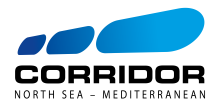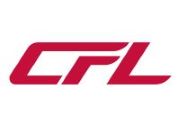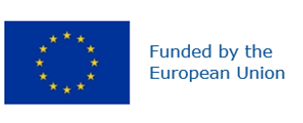The European Commission wants to promote rail freight transport and increase its modal share, hence promoting the transfert from road to rail. This modal share offers significant socio-economic and environmental benefits.
Regulation (EU) 913/2010
Regulation 913/2010 concerning a european rail network for competitive freight entered into force on 9 November 2010. The purpose of the Regulation is to create a European rail network composed of international freight corridors with a high level of performance. It addresses topics such as governance, investment planning, capacity allocation, traffic management and quality of service and creates the concept of a corridor one-stop shop.
The 10th November 2013, six of the nine corridors listed in the annex of this regulation became operational. RFC North Sea - Med is one of them.
Support from the European Union
The European Commission has always played a major role in supporting rail freight corridors, as it has supported them both politically and financially. RFC North Sea - Med takes part in working groups organised by the Commission to facilitate coordination between corridors and has received European funding to co-finance ERTMS as well as to carry out the tasks resulting from the Regulation (EU) 913/2010.
RailNetEurope
RailNetEurope (RNE) is an association composed of 37 rail infrastructure managers and allocating bodies in Europe. It has a purely operational objective and is dedicated to facilitate international traffic on the European rail infrastructure. RFC North Sea - Med uses RNE tools, services and guidelines. It also actively participates in its rail freight corridor meetings. The rail freight corridor page of RNE can be found here.






